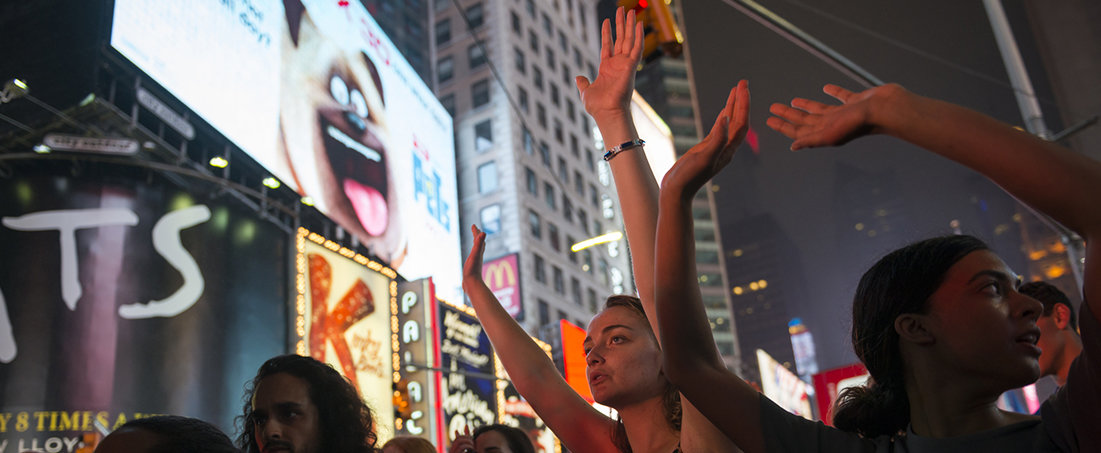The rise of real world direct action organised online against companies and governments
The turbulence of 2016 was a fertile ground for activist movements. Global movements like BLM, organisations like SumOfUs and UK activists groups like Momentum finessed their networked approach, built infrastructure and shared winning tactics. Whilst these organisations built their names and followings through online activity, they are now combining these techniques with traditional grassroots methods to organise big offline moments directed at companies, governments and individuals.
This trend poses the biggest threat to organisations with large footprints and with multiple public facing touch points. In a world where campaigners start to routinely mobilise hundreds or thousands of people against you overnight, you will need to ensure that all staff are trained to contain the risks.
Mobilisation of staff and customers on a company’s behalf
With Theresa May’s move towards responsible capitalism companies will have to work much harder to show their social value or risk regulation. It will become incredibly important to combine a traditional public affairs strategy with a targeted mobilisation campaign. By using the internet companies can make it easier for staff and customers to advocate on their behalf.
VR public and corporate affairs moments
The launch of lightweight virtual reality headsets and apps that work with smart phones has opened up a great opportunity for the medium’s use in public affairs. It is known that a visit to a big site can win the support of even the most sceptical politicians, however the logistics have meant it was impossible to do so at this scale. Virtual reality allows you to take decision makers on a tour in any meeting or email you want.
The reputational impact of algorithms, machine learning and bots
Algorithms and bots are in many online consumer products. Their recommendations help tailor the web and make it relevant. However the assumptions they make about individuals, the suggestions they make or the way they use data to improve themselves can all have a reputational impact if they go wrong. In 2017 all organisations that use these products will have to ensure they have the messaging and systems in place to mitigate these risks.
Video as default
The massive investment that major social media platforms put into video in 2016 has made it the best way to get engagement online. In 2017 this trend will only accelerate with organisations switching to the format to keep their audience’s interest. Not all online video will be high budget. Organisations that get this right will combine animation, audiograms, mobile video, live streams and high production value video on their feed.
Rise and death of fake news
Fake news gained notoriety during the 2016 presidential campaign and in 2017 organisations will have to be vigilant to ensure their staff don’t fall victim to fake reports about them. However the backlash from opinion makers and politicians has the big social media platforms worried about regulation. Facebook and reddit have already started to invest millions of dollars in finding a technical solution. By the end of 2017 fake news will have gone the way of the internet pop-up, but until it does you will need to ensure your communications teams are equipped for rapid rebuttal.
Journalists, protesters and the C-suite go live on social
Facebook and Twitter’s investment in live video and their promotion of it within their apps gives organisations the opportunity to talk directly to their audience quickly and authentically whenever they want. This can act as a great way to frame a product launch, financial results or even a crisis. It also can speed up a visual crisis situation like a fire or spillage allowing anybody with a smart phone to broadcast your misfortune to world live.
Lock screen notifications and crisis communications
The prevalence of lock screen notifications will have an accelerating effect on crisis situations in 2017. Whereas before your customers or stakeholders would have had to go looking for news alert about your issues and problems, if it is big enough, it will now be pushed directly to their home screen.

